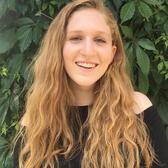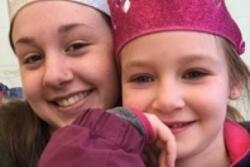Eyes Wide Open
It’s hard to admit I’m not an expert when it comes to race. I do my best to be as informed as possible, but as a privileged white woman, I recognize I’ll never be able to fully understand systemic racism and how it affects people of color. On a school trip to the American South, though, my eyes were opened further, and I learned that there’s far more to racial injustice in this country than I was aware of initially.
On the trip, I explored various elements of black history, such as the evolution of our criminal justice system, the Civil Rights movement, and the Reconstruction Era. I met with a Freedom Rider, the youngest woman who marched at Selma, and Rosa Parks’ lawyer. Our final destination was Martin Luther King’s home in Georgia. Sitting near Dr. King’s front lawn, ruminating on this transformative trip, I was troubled. It wasn’t just the pain of grappling with modern racism; I was uneasy about how surprised I was by all of this new information.
Previously, I had considered myself a fierce ally in the fight for racial equality. In my majority-white, all-Jewish school, I was often a vocal advocate for equal rights. I knew that racism was a horrific issue our country was plagued with from the very beginning. But after the trip, I realized I was also oblivious to certain elements of the black experience, and I didn’t like that feeling. I always wanted to be as well-informed as possible so I could promote equality, and so people of color would see me as an ally. But this trip made me realize—that’s not what being an ally is about.
As an ally, I shouldn’t be at the center of the fight for racial equality. When I realized how uninformed I truly was, I also realized I needed to listen harder, and more carefully, to the voices of those being marginalized. I have the luxury of being surprised when I learn how pervasive racism is, but so many people endure this racism every day. It’s not just a case study; they’re living it. When issues of race surface, I should do my research before commenting.
Instead of speaking louder myself, I want to work to amplify the voices of people of color. This was challenging to accept at first. I associate advocacy with passion, which often manifests in volume. As a result, I want to be as active as possible when it comes to discussion about racial issues. But I’ve come to understand that being a true ally isn’t about speaking louder, it’s about listening harder.
It even feels a little awkward to reflect on the lessons I’ve learned, because I don’t want to make this about me. At the same time, in order to determine how to be the best possible ally, I have to rethink how my own racial identity and privilege play into this issue, and even contribute to it. I want to grapple with that discomfort, and turn it into action.
At the end of the day, it doesn’t really matter that I can’t be an expert on racism. As a white person, that’s not my role in the fight to end racism. I continue to educate myself, and read as much as possible about the ways in which racism manifests itself in our society. For anyone else looking to deepen their knowledge, I strongly recommend books like Just Mercy, Makes Me Wanna Holler: A Young Black Man in America, and Between the World and Me. I won’t ever know the most about racism because it’s not something I experience personally. The most important thing is that my trip to the South opened my eyes to what it really means to be an ally, and now, I need to keep them open.
This piece was written as part of JWA’s Rising Voices Fellowship.








Good work, Shira! Awesome ending!